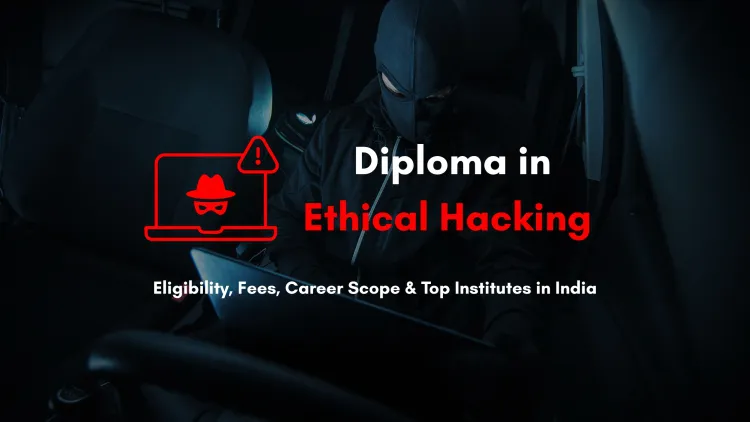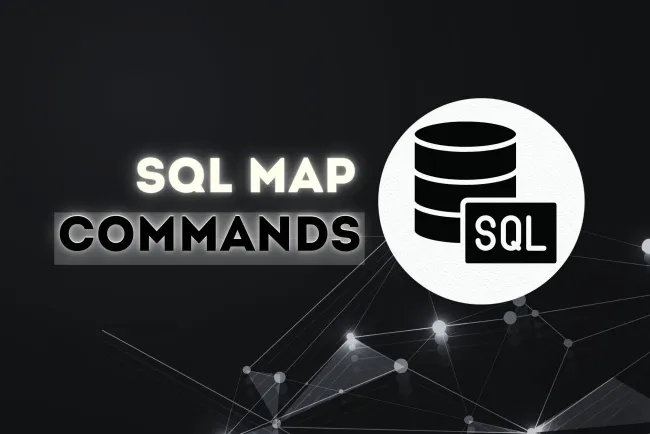Best Diploma in Ethical Hacking Course Near Me | Eligibility, Fees, Career Scope & Top Colleges in India (2025 Guide)
Looking to kickstart your career in ethical hacking and cybersecurity? A Diploma in Ethical Hacking is one of the best choices in 2025 for students, IT professionals, and tech enthusiasts who want to secure networks, prevent data breaches, and outsmart cybercriminals. This blog explains everything you need to know about the diploma course — from eligibility criteria, course fees, duration, syllabus, job roles, and certifications, to the top ethical hacking training institutes in India. You’ll also find a detailed FAQ section addressing the most common queries that prospective learners have about ethical hacking diploma programs.

In the rapidly evolving digital age, cybersecurity is no longer optional — it’s a necessity. With cybercrimes increasing at an alarming rate, the demand for skilled ethical hackers has never been higher. A Diploma in Ethical Hacking equips students and professionals with the skills to identify vulnerabilities, secure networks, and ethically counter cyber threats. This blog provides a comprehensive overview of the course, covering everything from its importance to career prospects and more.
What Is a Diploma in Ethical Hacking?
A Diploma in Ethical Hacking is a specialized training program designed to teach individuals how to think and act like hackers — but legally and ethically. The course enables learners to discover weaknesses in systems and networks and fix them before malicious hackers can exploit them. The objective is to understand hacking tools and techniques to defend against real-world cyberattacks.
The curriculum is a mix of theoretical foundations, hands-on labs, and practical simulations. It is ideal for those interested in pursuing a career in cybersecurity, penetration testing, or IT security.
Who Should Pursue This Course?
This diploma is suitable for:
-
Students (10+2 or graduates) interested in cybersecurity
-
IT professionals wanting to switch to cybersecurity roles
-
Network engineers or system administrators
-
Working professionals aiming to enhance their cyber defense skills
-
Entrepreneurs and business owners looking to protect their digital assets
Course Objectives
The diploma is structured to provide:
-
A solid understanding of cybersecurity concepts and threats
-
Hands-on experience with ethical hacking tools and techniques
-
Real-time exposure to penetration testing and vulnerability scanning
-
Preparation for international certifications like CEH, CompTIA Security+, or OSCP
-
Industry-oriented knowledge for job readiness
Key Topics Covered in the Ethical Hacking Diploma
-
Basics of Cyber Security and Information Security
-
Networking Fundamentals and TCP/IP Architecture
-
Operating System and Linux Fundamentals
-
Footprinting, Scanning & Enumeration Techniques
-
Vulnerability Assessment
-
System Hacking and Privilege Escalation
-
Trojans, Backdoors, Viruses and Worms
-
Sniffing, Session Hijacking, and Spoofing
-
Denial of Service (DoS) and Distributed DoS Attacks
-
Social Engineering and Phishing Attacks
-
Web Server and Web Application Hacking
-
Wireless Network Hacking
-
Cryptography and Secure Communication
-
Mobile, IoT, and Cloud Security
-
Cyber Laws and Legal Compliance
-
Tools: Nmap, Metasploit, Burp Suite, Wireshark, Aircrack-ng, etc.
Duration and Course Format
A diploma in ethical hacking generally spans:
-
3 to 6 months (regular/full-time)
-
6 to 12 months (part-time/weekend)
-
Online or offline/hybrid formats depending on the institution
Students typically undergo both theoretical lectures and practical labs, often ending with a project or capstone assignment.
Course Fee Structure
The cost varies based on the institution, mode of delivery, and curriculum depth. Below is an approximate fee breakdown:
| Course Type | Duration | Average Fee (INR) |
|---|---|---|
| Basic Diploma | 3-4 months | ₹25,000 – ₹50,000 |
| Advanced Diploma | 6-12 months | ₹50,000 – ₹1,50,000 |
| Online Bootcamp | 2-3 months | ₹15,000 – ₹40,000 |
Skills You Will Gain
-
Ethical Hacking and Penetration Testing
-
Malware Analysis and Reverse Engineering
-
Network Defense and Intrusion Detection
-
Vulnerability Scanning
-
Risk Assessment and Incident Response
-
Cyber Threat Intelligence and OSINT
-
Report Writing and Compliance Auditing
Popular Tools Taught
Students get hands-on experience with tools used by professionals, including:
-
Nmap
-
Wireshark
-
Metasploit
-
Burp Suite
-
Nessus
-
John the Ripper
-
Aircrack-ng
-
Kali Linux
-
OWASP ZAP
-
Hydra
Career Opportunities After the Diploma
Graduates of a diploma in ethical hacking can pursue roles such as:
| Job Role | Average Salary (INR/year) |
|---|---|
| Ethical Hacker | ₹4L – ₹8L |
| Cyber Security Analyst | ₹4.5L – ₹9L |
| Penetration Tester | ₹6L – ₹10L |
| SOC Analyst | ₹3.5L – ₹7L |
| Information Security Analyst | ₹5L – ₹10L |
| Security Consultant | ₹7L – ₹15L |
With experience and advanced certifications, professionals can earn significantly more.
Certification and Recognition
Many diploma courses also prepare you for globally recognized certifications:
-
Certified Ethical Hacker (CEH)
-
CompTIA Security+
-
EC-Council Certified Security Analyst (ECSA)
-
Offensive Security Certified Professional (OSCP)
-
Certified Information Systems Security Professional (CISSP)
Why Choose Ethical Hacking as a Career in 2025?
-
Increasing dependency on cloud and remote systems
-
Surge in cyberattacks, ransomware, and phishing campaigns
-
Government and corporate demand for white-hat hackers
-
Global shortage of over 3.5 million cybersecurity professionals (Source: Cybersecurity Ventures)
Conclusion
A Diploma in Ethical Hacking is a gateway to one of the most in-demand and respected careers in tech today. Whether you are a student looking to start early or a working professional seeking a career change, this course provides the perfect blend of theory and practice to launch your career in cybersecurity. Make sure to choose a well-reviewed institute that offers industry-relevant certifications and real-world training. With the right guidance and motivation, you can become a digital guardian of tomorrow’s cyber world.
FAQs:
What is a diploma in ethical hacking?
A diploma in ethical hacking is a professional certification program that trains individuals to identify and fix security vulnerabilities in digital systems using legal and ethical techniques.
Who can enroll in an ethical hacking diploma course?
Anyone who has completed their 10th or 12th standard, or holds a diploma/graduate degree with interest in cybersecurity, can enroll in this course.
What is the duration of the ethical hacking diploma course?
Typically, the course duration ranges from 3 to 12 months depending on whether it's a basic or advanced diploma.
What is the average fee for a diploma in ethical hacking?
Fees can vary between ₹25,000 to ₹1,50,000 based on the institution, course level, and delivery format (online/offline).
Is ethical hacking a good career in 2025?
Yes, ethical hacking is a high-demand and future-proof career path due to the increasing threats in the digital landscape.
Which skills are taught in an ethical hacking course?
You’ll learn network scanning, vulnerability assessment, system hacking, social engineering, wireless security, and penetration testing.
Do I need a coding background to learn ethical hacking?
While not mandatory, having basic knowledge of programming languages like Python, C, or Bash can be an added advantage.
Can I do an ethical hacking course online?
Yes, many institutions offer both self-paced and instructor-led ethical hacking diploma courses online.
What are the best institutes for ethical hacking in India?
Popular choices include WebAsha Technologies, Craw Security, Indian Cyber Security Solutions, and Hacker School.
Does the diploma include certification preparation like CEH?
Yes, most diploma courses include training for certifications like CEH (Certified Ethical Hacker), CompTIA Security+, and OSCP.
Is ethical hacking legal in India?
Yes, ethical hacking is completely legal as long as it is done with proper authorization and for defensive purposes.
What job roles can I get after this diploma?
You can work as an ethical hacker, penetration tester, cybersecurity analyst, SOC analyst, or vulnerability assessor.
What is the starting salary after completing the diploma?
Freshers can expect a salary range of ₹3.5 LPA to ₹6 LPA, with opportunities to grow based on certifications and experience.
Do ethical hackers work with government agencies?
Yes, many ethical hackers are hired by defense organizations, law enforcement, and government cybersecurity departments.
What tools will I learn in the diploma course?
Tools include Kali Linux, Wireshark, Nmap, Burp Suite, Metasploit, Aircrack-ng, and OWASP ZAP.
What is the difference between ethical hacking and cyber forensics?
Ethical hacking is about finding and fixing vulnerabilities, while cyber forensics involves investigating cybercrimes after they occur.
Are there any prerequisites for joining the course?
There are usually no strict prerequisites, but basic computer and networking knowledge is helpful.
Is there any age limit to do this course?
No, there is no age limit; anyone with interest and passion can enroll.
Can I pursue this diploma after 10th standard?
Yes, some institutes offer foundational-level courses or diploma programs after 10th with proper counseling.
Is this diploma recognized internationally?
Courses from reputed institutes that include CEH or other certifications are recognized worldwide.
What is the mode of teaching in most courses?
Courses are delivered via classroom lectures, online sessions, and hands-on practical labs.
What industries hire ethical hackers?
IT companies, financial institutions, e-commerce, defense, healthcare, and government sectors all need ethical hackers.
Is placement assistance available after completing the course?
Yes, many institutes like WebAsha Technologies provide career guidance and job placement assistance.
Can I work as a freelancer after this course?
Yes, many ethical hackers freelance for companies globally or offer bug bounty hunting services.
How is ethical hacking different from black-hat hacking?
Ethical hacking is legal and defensive, done with permission, whereas black-hat hacking is illegal and malicious.
What certifications add value to the diploma?
CEH, CompTIA Security+, OSCP, and CISSP are top certifications to pursue after or along with your diploma.
Is practical experience part of the course?
Yes, most diploma programs are practical-focused and include lab exercises, simulations, and real-world scenarios.
Can I get government jobs with this diploma?
Yes, many government job notifications look for cybersecurity and ethical hacking skills, especially in defense and IT roles.
Does the diploma cover mobile and cloud security?
Yes, advanced diploma programs include mobile, IoT, and cloud security modules.
Will this course help in clearing CEH exam?
Definitely. The course covers all modules aligned with CEH v12 and gives you the skills to pass the exam confidently.












![Top 10 Ethical Hackers in the World [2025]](https://www.webasha.com/blog/uploads/images/202408/image_100x75_66c2f983c207b.webp)

![[2025] Top 100+ VAPT Interview Questions and Answers](https://www.webasha.com/blog/uploads/images/image_100x75_6512b1e4b64f7.jpg)









